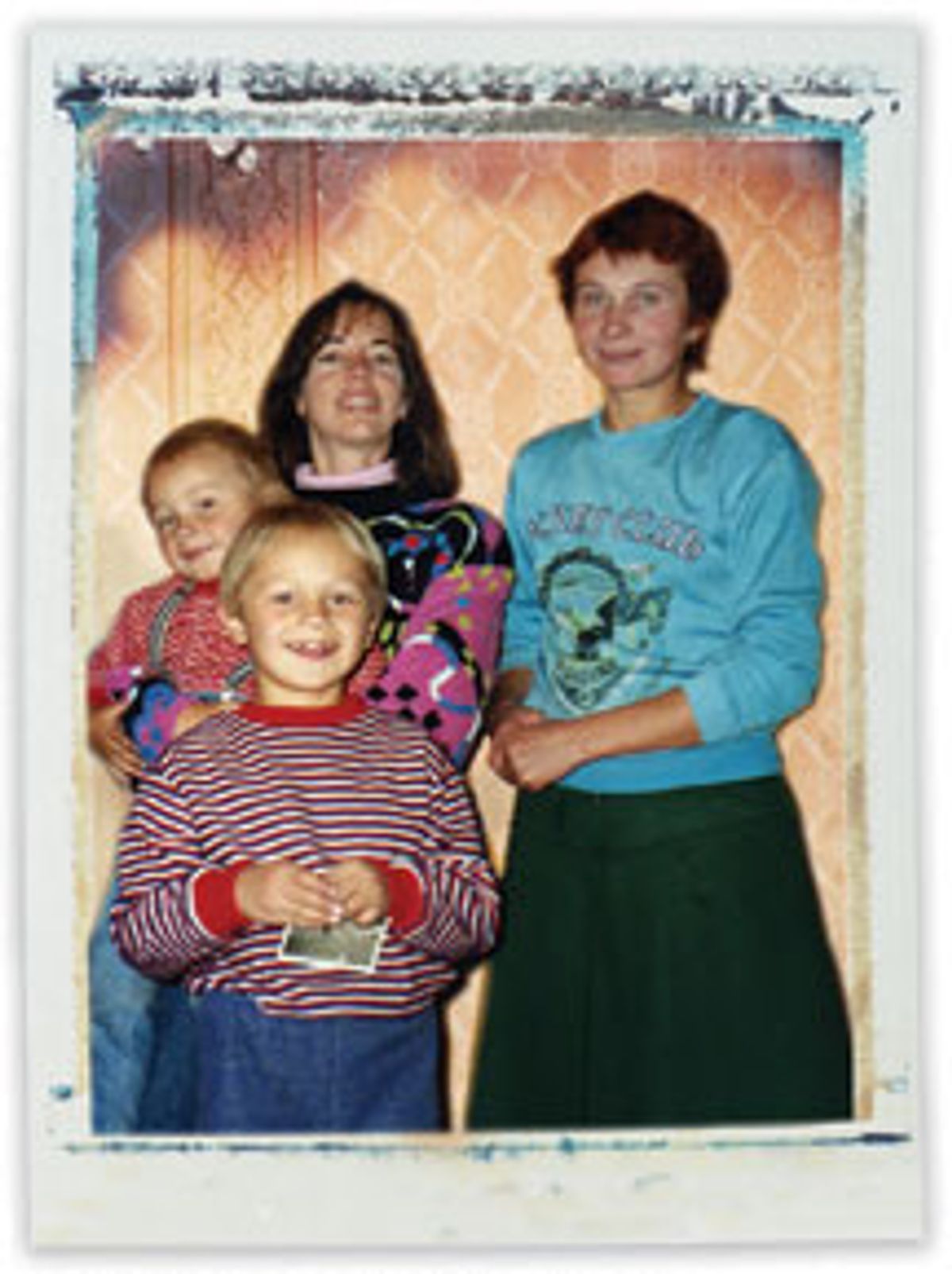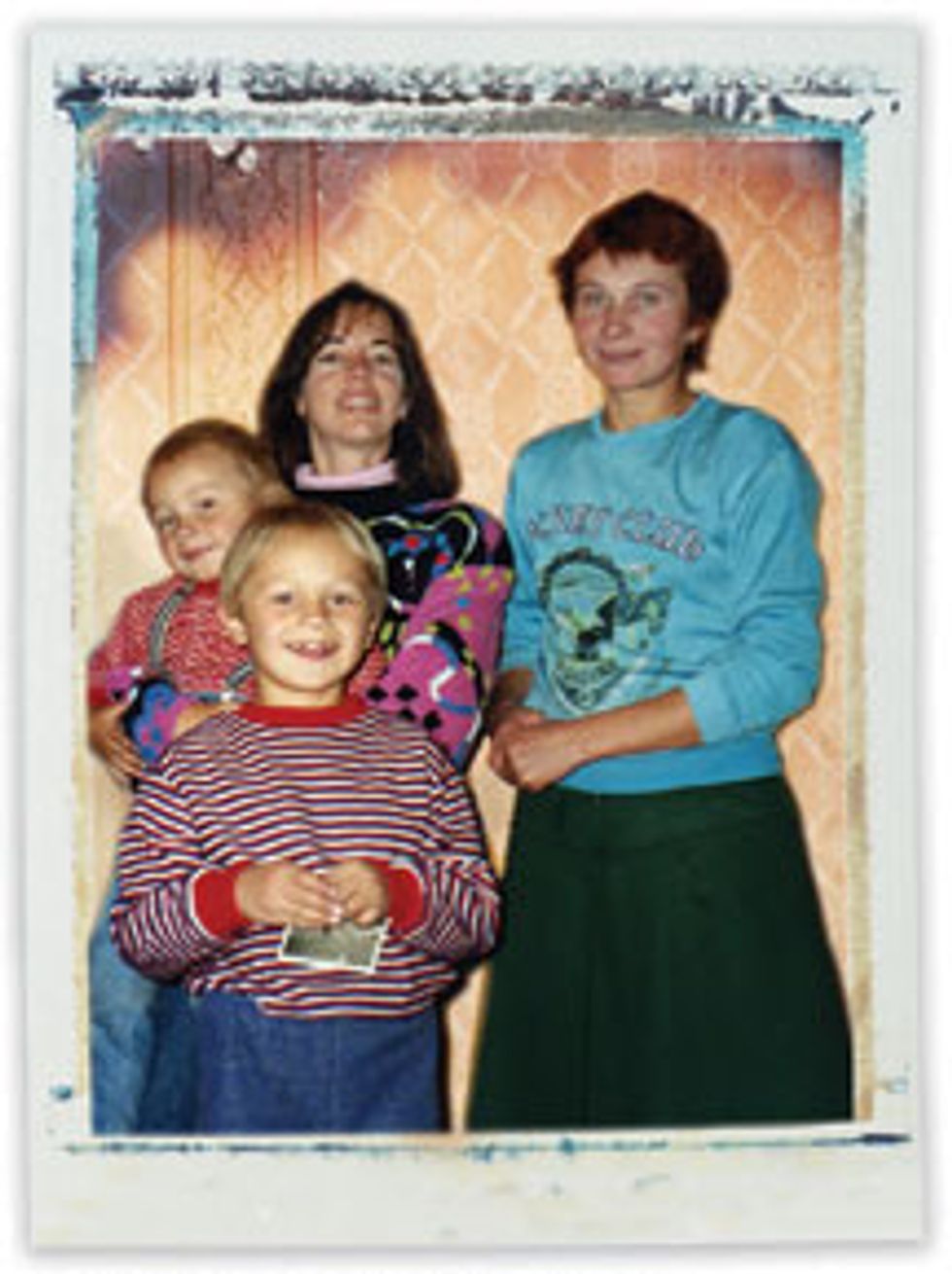This is part of IEEE Spectrum's special report on the battle for the future of the social Web.
In 1921, the year Czech writer Karel Capek's hit play about robots was first staged and Albert Einstein won the Nobel Prize in Physics, my grandmother left Milik, a tiny Russian village in the Carpathian Mountains, to travel by ship to the United States. When she left, she knew she was saying good-bye forever. She wouldn't even be writing letters—she couldn't read or write.
In 1990, the year before the European Organization for Nuclear Research announced its World Wide Web project and the Soviet Union dissolved, my husband and I went to find her village, now in Poland, near the border of Slovakia. We took a train to Kraków and then hired a driver to take us into the mountains. Milik wasn't on any maps we could find, but we knew the name of a town nearby. We started out there, and along the way our driver stopped frequently to ask for directions. Milik itself hadn't changed much since my grandmother's day. We asked the driver to help us find a family in the village that might be interested in renting a room to us. He did, and we stayed with them for a few days, roaming the countryside with their young children as guides, taking turns churning butter. After our visit, we exchanged letters and photos, but getting their letters translated from Polish was difficult, and within a year we stopped communicating. It wasn't odd or particularly sad; most of the people I've met while traveling haven't become permanent friends.
But now it's 2011, and technology titans Facebook and Google have changed all that.
A few weeks into this year I was friended on Facebook by a 24-year-old man named Pawel. He sent along a scan of a picture taken in 1990 of me holding him, then age 3, in Milik, and told me his family often reminisced about the time we stayed with them.
He and I exchanged Facebook mails. Curious to see just how much Milik had grown, I looked for it on Google Maps, and there was the satellite view, the single road, the scattering of homes. Given that it wasn't on any kind of map 20 years ago, I was stunned. Then I looked it up on Wikipedia—and there it was again, population 700. I guess I knew the social Web was everywhere, but I really didn't get it until that moment.
In our correspondence, I complimented Pawel on his English. He confessed that he didn't speak English and that he used a translator program. So much for struggling to translate Polish snail mail! I asked him where he was using the Internet, thinking that perhaps the church or local school had access. "Every house has Internet," he replied, "it is like water in the tap."
And that's our world, one in which the Internet flows like water, changing everything it touches. For better and for worse, Facebook and Google and myriad other Web-based communication tools have made it possible to stay connected to friends and enemies, acquaintances and strangers, professional colleagues old and new, even genealogically related distant relatives, as we signal our presence in the Internet-bound universe. Language is no longer a barrier. Saying good-bye has in some sense become impossible.
And as social networks continue to seep into the fabric of our lives and begin to actively initiate relationships and transactions, perhaps one day I'll get a message, not from Pawel but from his Facebook identity, telling me that he's on his way to San Francisco and hopes to meet up with me at my favorite Thai restaurant on the 21st of the month, because my Facebook identity has alerted him that I'll be headed for the city that day. Will I be eager to meet the real live grown-up Pawel? Or will I want to close the door on the Internet-imposed present and just hold on to my own fond memories of him and his family instead?
This is part of IEEE Spectrum's special report on the battle for the future of the social Web.

